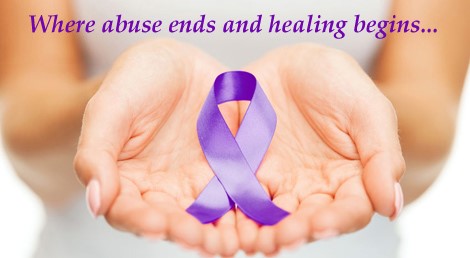 Domestic/Sexual Assault Outreach Center
Domestic/Sexual Assault Outreach Center
Phone: (515)-955-2273 Crisis Line: (888)-356-2006
D/SAOC Mission
We offer safety, support and hope to adult and child victims of sexual assault, domestic violence, violent crime and loved ones of homicide victims, because all people deserve a violence-free life and a compassionate community.
D/SAOC has been a part of the Greater Fort Dodge area for over 25 years. The Domestic/Sexual Assault Outreach Center (DSAOC) was formed when two previously separate programs were merged in July of 1992. The merger of Family Violence Center of North Central Iowa and Rape/Sexual Assault Victim Advocates enabled the agencies to coordinate and combine services. This was one of the first comprehensive domestic violence and sexual assault programs in the state.
Today, DSAOC is a Crisis Based Shelter serving victims of domestic violence, sexual assault, trafficking, stalking and violent crimes. All services are free and confidential. DSAOC provides 24 hour 7 day a week services. Services include, but are not limited to: shelter, crisis/toll free hotline, counseling, court advocacy, safety planning, case management, basic needs, support groups, activities and housing opportunities. DSAOC also has a Homicide/Other Violent Crimes Program. This program supports families and friends of victims of homicide and violent crimes.
At DSAOC, we believe that victim advocacy programs and the availability of safe shelter can best assure the prevention and amelioration of domestic abuse, sexual assault, trafficking, stalking and violent crime.
DSAOC’s objective are to continue providing quality services to clients with an emphasis on client safety and well-being, and healthy relationships involving children. The focus areas of these objectives are:
1. Emergency Support
2. Homelessness
3. Strong Families
Emergency Support:
Emergency support is most often the first interaction with a victim of violence. DSAOC’s Crisis Based Shelter becomes a “safe haven” for clients who are fleeing from their abuser.
 DSAOC makes shelter services available 24/7 for anyone in an unsafe situation as a result of domestic violence, sexual assault, stalking, trafficking, and other violent crimes; including homelessness resulting from the abuse. Some of the shelter services include assistance with food, clothing, personal and medical needs, support groups, and transportation. Services within shelter are free of charge and confidential and support the survivor’s choices and ability to control their own life. Shelter services also include advocacy, including but not limited to the criminal or civil justice system, medical setting, housing, employment and personal areas.
DSAOC makes shelter services available 24/7 for anyone in an unsafe situation as a result of domestic violence, sexual assault, stalking, trafficking, and other violent crimes; including homelessness resulting from the abuse. Some of the shelter services include assistance with food, clothing, personal and medical needs, support groups, and transportation. Services within shelter are free of charge and confidential and support the survivor’s choices and ability to control their own life. Shelter services also include advocacy, including but not limited to the criminal or civil justice system, medical setting, housing, employment and personal areas.
DSAOC will provide a safe shelter – including basic necessities, personal care items, safety planning, and information allowing prioritization of personal needs and identification of community resources to achieve safe housing. The methods and processes aligned with the agency’s mission are:
Safe Affordable Housing:
DSAOC offers many supportive services for clients while staying in shelter, one of which is housing. Safe affordable housing can be a large obstacle for victims of violence; therefore, DSAOC has staff who are designated as Housing & Economic Justice Specialists (HEJS). DSAOC’s HEJS provide case management, financial planning, budget training, and assistance with locating housing. DSAOC is also in most cases able to assist with the first and last month’s rent.
The HEJS have established many alliances with landlords, property managers and housing agencies within the service coverage area. These relationships have proven to be beneficial when placing clients in housing. Many clients have past experiences that typically prevent them from securing housing on their own; however, with the assistance from DSAOC, clients are given a chance they may not have had otherwise.
Clients placed in housing can receive an additional program benefit of follow up services. Follow up consists of keeping in contact and making sure clients are on pace for success after leaving shelter. This outreach lasts approximately three months and is completely voluntary on the client’s part.
Strengthen Families:
An objective of DSAOC services is to provide opportunities for parents to reconnect with their children after traumatic events in their lives. DSAOC currently has support groups, a summer interaction program, and individual services. A program area that DSAOC is expanding on is empowering parents to regain control of their lives and their children’s lives by facilitating a new in-shelter support group called Parenting After Trauma Support (P.A.T.S) group.
A focus of DSAOC is to repair damaged relationships within a family unit caused by the abrupt life changing events victims and families have endured. Often parents are unable to heal from their own trauma so it’s difficult for them to give the attention that is necessary for their children to heal. A support group would provide parents with the opportunity to express concerns, and teach them skills to be better listeners. Parenting after domestic violence comes with challenges. For a victim there is a web of emotions, their own and their children’s that can complicate even daily routines. Very often, there has been an erosion of authority as a parent that leaves a feeling of being powerless. Restoring trust and authority is a difficult process. Parents need assistance in gaining back parental power after violence, in a way that is healing for both them and their children.
This year DSAOC is focusing on a support group for the parents residing in shelter. This program was designed by the Child Advocate and Activities Coordinator. P.A.T.S. group will meet weekly. The support group will be based strictly on the needs of the participants and each topic will be decided the week prior to the next meeting. The topics will be chosen as a group and may include self-esteem, violence, routines, sibling rivalry, and other behavioral/emotional concerns. Childcare will be provided during the P.A.T.S. time so parents are able to give their full attention on learning new skills and interacting with peers without interruption. Children coming from violent homes oftentimes have behavioral, cognitive, and emotional issues that intensify when a parent leaves the abuser. In homes where there is domestic violence, usually the non-abusing parent has not been allowed to set rules and boundaries or provide follow through, therefore upon entering shelter, clients struggle to manage their children.
Goals of the P.A.T.S. group:
1. Repair the family dynamics that were damaged by the events that led them to a crisis shelter.
2. Empower the parents to utilize new skills to regain control and be back in a position of authority to their children.
3. Form a solid support system through staff and other parents struggling with the same issues that they can carry with them when they leave shelter.
DSAOC staff is aware of other similar quality parenting resources in our community; however, for the clients residing in a crisis shelter, safety is likely a concern, therefore leaving the shelter facility isn’t always an option. P.A.T.S. is a program new to DSAOC and it is the hope to make it a long-term service offered to clients as parents living in shelter.
DSAOC will continue providing individual counseling and support groups to clients and their children to reinforce techniques learned in the P.A.T.S. group. Outside of the P.A.T.S. group, the Child Advocate will work closely with the parent and child to assist however necessary to strengthen their relationship and give them guidance to bond. The combination of services provided to clients at DSAOC will rebuild and strengthen their family unit so when they leave the shelter, they will have the tools to be better parents and a stronger family unit.
Volunteers:
Volunteers are vital and an important part of DSAOC. Volunteers at the shelter may assist with client activities, shelter maintenance, office work, fundraising, and any other needs that arise. The Key on Central is a re-sale store that is also part of DSAOC. This store is fully supplied by donations from the community. The store includes one staff person and 4-6 volunteers each day to keep operations continuing. The store is open to the public and offers its merchandise at affordable prices. A key advantage to having the store is the opportunity it offers to DSAOC clients. Clients many times arrive at the shelter with little or no belongings. The Key on Central can provide clothes, shoes and coats at no cost to the client. The store can also provide furniture and household items to clients when they are ready to move into a home of their own. Volunteers are the reason The Key on Central is open and just another example of why volunteers are needed and valued at DSAOC.
Facility:
The Crisis Based Shelter includes:
* Also available are cribs, toddler beds, couches and if necessary sleeping bags
* one being handicapped accessible and newly remodeled
* Living room
* Dining room
* Computer room
* Laundry
* Outside Patio
* Playground area for children
Funding Sources:
DSAOC receives funding from the following:
Program Outcomes:
While staying in shelter, clients interact regularly with staff. This time together serves as an opportunity to establish self-set objectives and goals such as:
Self-Care – giving themselves time to rest and heal
Family Structure – caring for their children, working towards getting their children back, or repairing the relationship with their children
Addictions – learning how to deal with and stop the substance abuse addictions their past situations have lead them to develop
Life Skills – learning house to manage without someone controlling their lives
Social Skills – becoming familiar with social surroundings, re-connecting with family/friends
Education – completing an educational goal or creating a new one
Employment – seeking job opportunities to become more self sufficient
Housing – establishing safe affordable housing
All services provided at DSAOC are centered on a caring and supportive structure for victims of violence. The ability to provide a safe place to stay, food, clothing, advocacy, housing and any other resources within the agency’s ability, is success at DSAOC.